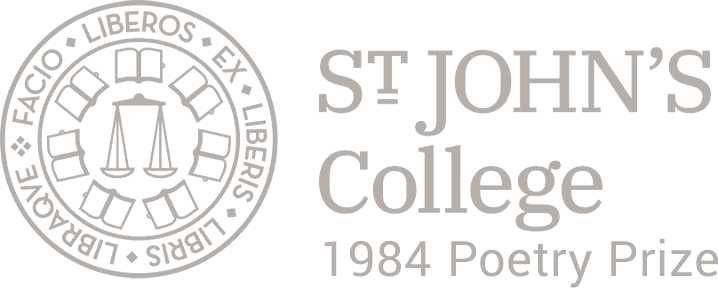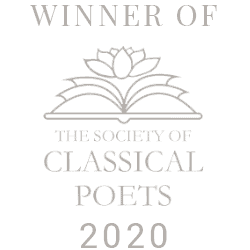
A New Mexico Poet of Triple Heritage
MacKenzie currently resides in the ancient hamlet of Bernalillo “where,” he boasts, “the written history of North America begins,” and where he serves the 400-year old community as its Library Director. Nuevomexicano of French and Spanish origins on the distaff side, Scottish, Irish, and English on the spear side, MacKenzie was dubbed by Edinburgh writer, poet, and architect Stanley Roger Green (1929-2015), “a franco-hispanic Scot, and that’s that.”
MacKenzie’s loftiest poetic inspirations are rooted in the profound, Catholic spirituality of New Mexico’s mountainous país del norte, the fabled tierra sagrada of leyendas y milagros representing for the young MacKenzie a kind of spiritual Highlands uniting all parts of his background. After all, had not his mother’s forebears longed for the days of the Emperador and the reyes católicos, just as his father’s had fought for the return of the Stuarts, exiled for their irrepressible faith? Are not the the Sandia and Sangre de Cristo mountains like those “wild” Highland peaks Sir Walter Scott has lamenting the departure of William MacKenzie, Fifth Earl of Seaforth, for his exile in Spain after his defeat at the Battle of Glen Shiel?
Indeed, the first two collections, Sonnets for Christ the King and its Mariological sequel, Sonnets for the Queen of Heaven, establishing MacKenzie as America’s foremost poet of sacred lyric verse, exude the fervent devotion of New Mexico’s penitentes, those austere and rugged norteños—men of the Cross, the morada, and the bloody scourge—with their otherworldly chanting of the ancient alabados, and his mother’s vivid childhood memories of Gregorian tenebrae services during the solemn silence of la semana santa. It is this, above all, that places MacKenzie directly in the line of New Mexico’s traditional poetas lyricos : Fray Angelico Chavez (1910-1996), Prospero Serafin Baca (1875-1962), Higinio Gonzales (1842-1921), and Miguel de Quintana (1677-1748), all poets of faith consecrated to la vida de la gente, the life off the people. It has been said that MacKenzie’s sacred sonnets are “English in language only.”
The Scottish Connection
The only American poet to have won First Place at the (now defunct) Scottish International Open Poetry Competition in 1994 (see Times Literary Supplement, London, Jan. 27, 2017), MacKenzie made the trip to Irvine to receive the prize in person. It was at the second oldest Robert Burns club in Scotland that he met some of the great poets of the modern “Scottish Renaissance,” an important literary movement marking a rebirth of interest in Scotland’s traditional dialects. Over time, the movement had gained enough prestige that Maya Angelou managed to find MacKenzie in his university department to congratulate him by phone when the news broke that an American had won. A Clinton White House attaché interviewed MacKenzie to place him on a list of persons of cultural interest.
It was on this occasion in Irvine, following an honorary soirée in Edinburgh featuring the city’s top literary lights, that MacKenzie met his lifelong mentor, Samuel Gilliland, the youngest of the Scottish Renaissance Poets and the group’s foremost representative of lyric poetry. As Gilliland’s own mentor, Hugh MacDiarmid (1892-1978), was the very father of the modern Scottish Renaissance, MacKenzie possesses a veritable, Scottish poetic lineage, the foundation of the increasing use of Scots in his output. For this reason, MacKenzie never recites without the magnificent poet’s mantle in the regimental MacKenzie Seaforth tartan which he was given at the time, a vivid reminder of the poet’s obligations to the people of Scotland who had shown him such kindness and hospitality.
The French Connection
In the course of his doctoral program in French Studies at the University of New Mexico, MacKenzie accepted the invitation of the French Ministry of Culture to teach English in a traditional French lycée just outside of Paris. During this time, Jean-Pierre Rosnay, the most famous poet of the French Résistance, made MacKenzie Poet in Residence at his then prestigious Club des Poètes (rue de Bourgogne). While there, MacKenzie was tutored in vocal technique and verse recitation by one of France’s most important theatrical coaches, Madame Colette Lecourt, author of the famous Voix de la Réussite. It was she who handed down to MacKenzie a precious, almost lost performance art, that of the traditional diseur. The French term signifies one who recites poetry from memory, a professional practitioner of the art of la déclamation. Soon MacKenzie was performing classic French poetry, mostly of the nineteenth century, both at the Club des Poètes and the Théatre des Déchargeurs (off the rue de Rivoli) where he was employed as a literary consultant for a production entitled Rimbeaud et Verlaine by the popular stage director and homme de théâtre Vicky Messica. It was Messica who formally presented MacKenzie, at one of their official séances, to the Société des Gens des Lettres, an organization whose members once included Honoré de Balzac, Victor Hugo, George Sand, Théophile Gautier and Alexandre Dumas père.
Cleric, Husband, Widower, Bard
MacKenzie spent several years as a traditional religious, first taking the Franciscan habit as a postulant, and then joining a French society to pursue formal theological studies in France, Switzerland, Italy, and back in the United States. Having received the traditional Minor Orders (Porter, Lector, Acolyte, and Exorcist), he left the religious state and subsequently married the Elizabeth, so named by friends as the beautiful “Lady of the Sonnets” who inspired MacKenzie’s numerous amatory verses. As the poet’s wife passed away January 13, 2025, MacKenzie is now a widower whose current work in progress is a collection of love poems produced under her inspiration and dedicated to her memory.
One of the Lady Elizabeth’s last instructions was that MacKenzie begin once more to recite in public, lest the art he received in Paris disappear from the world altogether. On April 6, 2025, he honored his wife’s wish by performing a full-length program (performed entirely from memory), entitled “The Harp of Longing: Classic Poems of the Scottish Diaspora,” in his beloved Bernalillo, with a subsequent Easter recital for a private event in Springfield, Ohio. Most recently, MacKenzie has been selected to open the 2025 Rio Grande Celtic Festival, as its official bard, with a performance of his “Ode to the Great Highland Pipes,” an Italianate sonnet that some pipers in Scotland report having used as a prayer before going onto the field in competitions.
appearances & awards



















